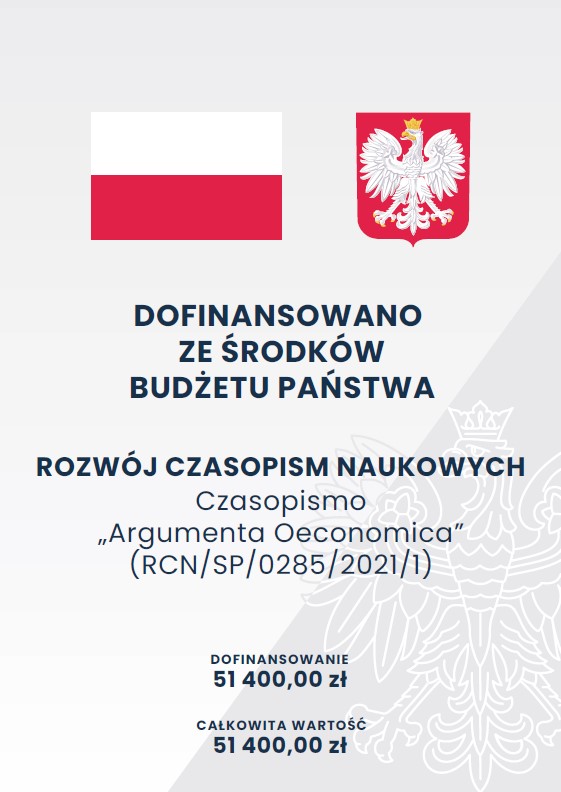Financial Capability Among Low-Income Households in Rural Parts of Poland
Abstract
This paper examines low-income households' financial capability by looking at their financial literacy, financial behaviour as well as financial inclusion. Using the data from micro-study, the author proves that even though financial literacy among low-income households is very low, most financial behaviour (especially the basic ones like managing a financial budget) are rather high. It seems that being financially illiterate does not stop low-income households from being financially capable, which might be mainly connected with some social and environmental factors that shape their capability and help low-income members of households to find some other ways of achieving satisfactory level of financial behaviour than just through increasing financial literacy. Moreover, having little money forces low-income households to become very careful financial decision-makers. Additionally, the multivariate analysis has shown that being financially literate (especially risk and debt literate) and being financially included are key latent factors in understanding financial capability among low-income households from rural regions of Poland. These two factors also play a significant role in understanding the adaptation to low-income among the polled households (measured by the marginal effects of pseudo-R2 ratio in logit model).(original abstract)Downloads
Download data is not yet available.
Downloads
Published
2019-01-30
Issue
Section
Articles
License
Copyright (c) 2019 Tomasz Potocki

This work is licensed under a Creative Commons Attribution-ShareAlike 4.0 International License.







